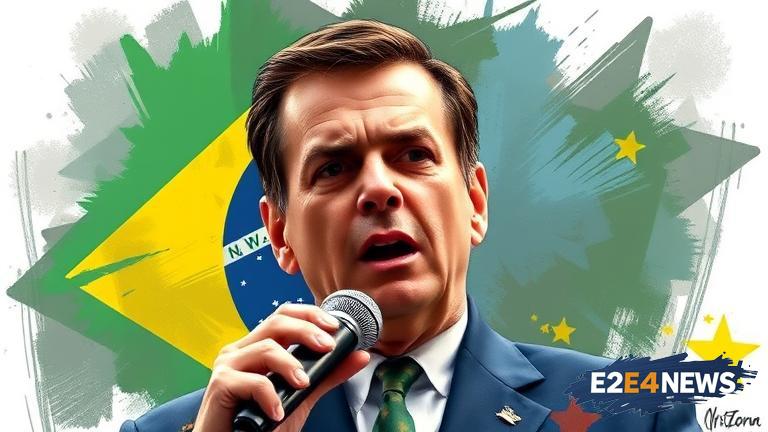Brazil’s Supreme Court has taken a significant step in holding former President Jair Bolsonaro accountable for his actions on social media. The court has ordered Bolsonaro to be placed under house arrest for defying a ban on using social media platforms to spread misinformation and promote violence. This move has sparked a heated debate in Brazil, with many seeing it as a necessary measure to protect the country’s democracy and others viewing it as an attack on free speech. The ban was initially imposed on Bolsonaro due to his repeated violations of the country’s social media regulations, which prohibit the spread of false information and hate speech. Despite the ban, Bolsonaro continued to use social media to promote his agenda and attack his opponents, leading to the Supreme Court’s decision to take further action. The house arrest order is seen as a significant escalation of the court’s efforts to hold Bolsonaro accountable for his actions. Bolsonaro’s supporters have rallied around him, claiming that the court’s decision is an attempt to silence him and undermine his political movement. However, critics of the former president argue that his actions on social media have contributed to a toxic and divisive political environment in Brazil. The Supreme Court’s decision has also sparked a wider debate about the role of social media in politics and the need for greater regulation to prevent the spread of misinformation. Many experts believe that the court’s move is a necessary step to protect Brazil’s democracy and prevent the spread of hate speech and false information. Others argue that the decision sets a dangerous precedent for censorship and could be used to silence opposition voices. The Brazilian government has welcomed the court’s decision, stating that it is a necessary measure to protect the country’s institutions and promote a more respectful and inclusive political discourse. The international community is also watching the situation closely, with many seeing it as a test of Brazil’s commitment to democracy and human rights. The United States, European Union, and other countries have all expressed concerns about the spread of misinformation and hate speech on social media and have called for greater regulation to prevent these phenomena. The Brazilian people are also divided on the issue, with some seeing the court’s decision as a necessary measure to protect the country’s democracy and others viewing it as an attack on free speech. The controversy surrounding Bolsonaro’s house arrest has also highlighted the deep divisions within Brazilian society, with many seeing the former president as a symbol of resistance against the country’s elite and others viewing him as a threat to democracy and stability. As the situation continues to unfold, it remains to be seen how the Brazilian government and Supreme Court will navigate the complex issues surrounding social media regulation and free speech. The court’s decision has also sparked a wider debate about the role of the judiciary in Brazilian politics and the need for greater accountability and transparency in government. Many experts believe that the court’s move is a significant step towards promoting a more democratic and inclusive political environment in Brazil. However, others argue that the decision could have unintended consequences and undermine the country’s democratic institutions. The Brazilian people will be watching the situation closely, as the country navigates this critical moment in its history. The international community will also be monitoring the situation, as it has significant implications for democracy and human rights in the region. The controversy surrounding Bolsonaro’s house arrest has also highlighted the need for greater dialogue and understanding between different sectors of Brazilian society. As the country moves forward, it will be important to find a balance between protecting free speech and preventing the spread of misinformation and hate speech. The Brazilian government and Supreme Court will need to work together to find a solution that promotes a more democratic and inclusive political environment, while also respecting the rights of all citizens to express themselves freely.





